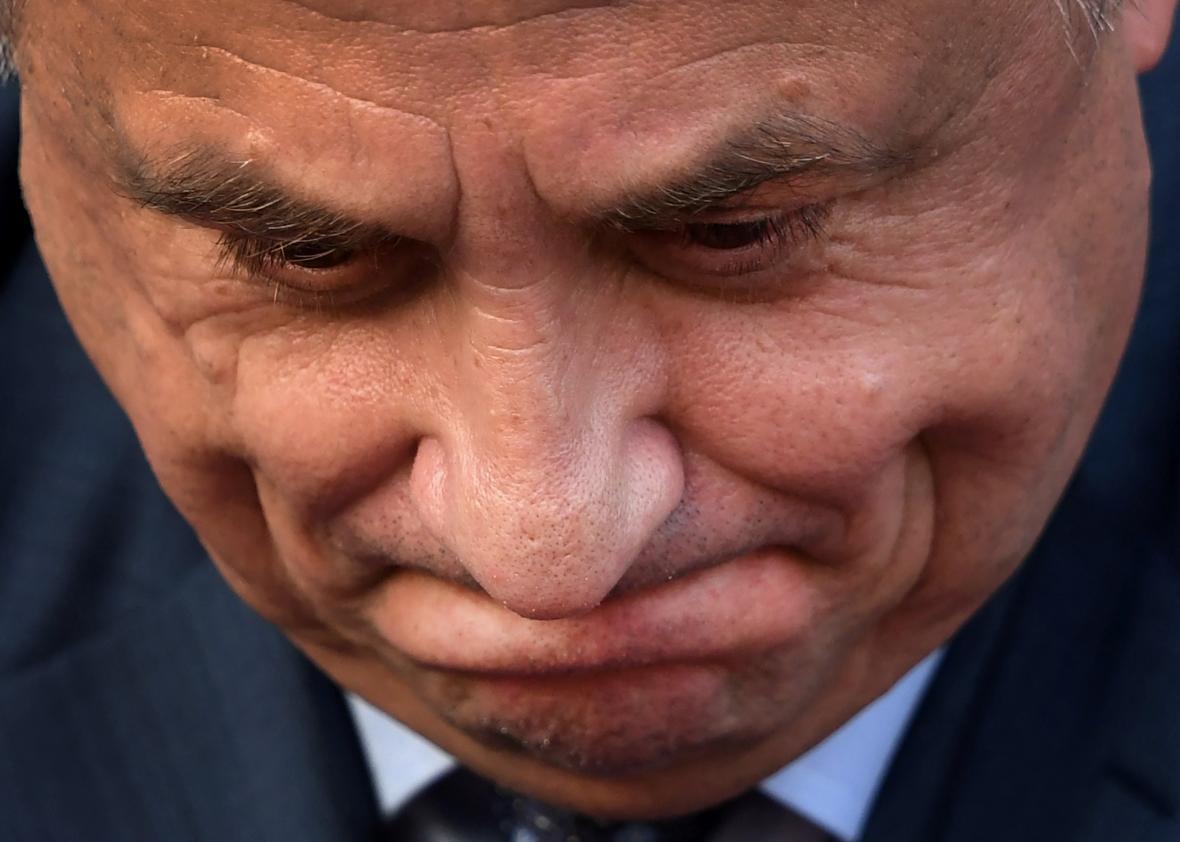Russia’s weightlifting team was barred on Friday from participating in the Rio Olympics due to doping. According to the BBC, “Two of the eight-strong weightlifting team had already been banned for prior violations, and another four were named in the McLaren report into the issue.”
The weightlifters are just the latest bump in Russia’s rocky road to Rio. Russia’s track and field team has been barred from participating in Rio since November. Then, in May, following years of whistleblowing attempts and speculation, Dr. Grigory Rodchenkov, former director of the Moscow laboratory that was meant to prevent doping, revealed to the New York Times a state-sponsored doping program put in place after Russia’s dismal performance at the 2010 Vancouver Olympics. That story led to a World Anti-Doping Agency report that confirmed Rodchenkov’s story and linked the program to both Russia’s deputy minister of sport, Yuriy Nagornykh, and Russia’s intelligence services, the FSB. As a result of the report (carried out by Canadian lawyer Richard McLaren), anti-doping officials from several nations requested that Russia be barred from Rio.
On Sunday, the International Olympic Committee, which had promised strongest sanctions, declined to ban the entire Russian delegation. Instead, the International Federation (IF) for each sport—not just the 20(!) implicated in the McLaren report—must decide whether its Russian delegation can compete. The IOC specified that national anti-doping evidence is insufficient proof, and that an international test and thorough analysis must be conducted. McLaren has been inundated with requests for information on individual athletes. Further, any athlete who had been sanctioned in the past would be barred (including track’s former whistleblower Yulia Stepanova, who was previously cleared to compete under a neutral flag).
Russia held a competition in Moscow on Thursday—the day the national team left for Rio—for those athletes who had been barred for doping. Russian Minister of Sport Vitaly Mutko said 272 of the originally selected 387 were cleared to compete in the Games themselves (which means 115 were not). Mutko also said earlier Saturday that Russia is planning to take legal action. “We will analyze each line and proceed legally against it,”he said on Match TV, a Russian sports channel. He added that banned athletes are planning to sue the authorities after the Olympics are over. One imagines that, like the sad substitute competition in Moscow, any reward for such legal action, being no match for an earned medal, would come as cold comfort to the athletes in question.
